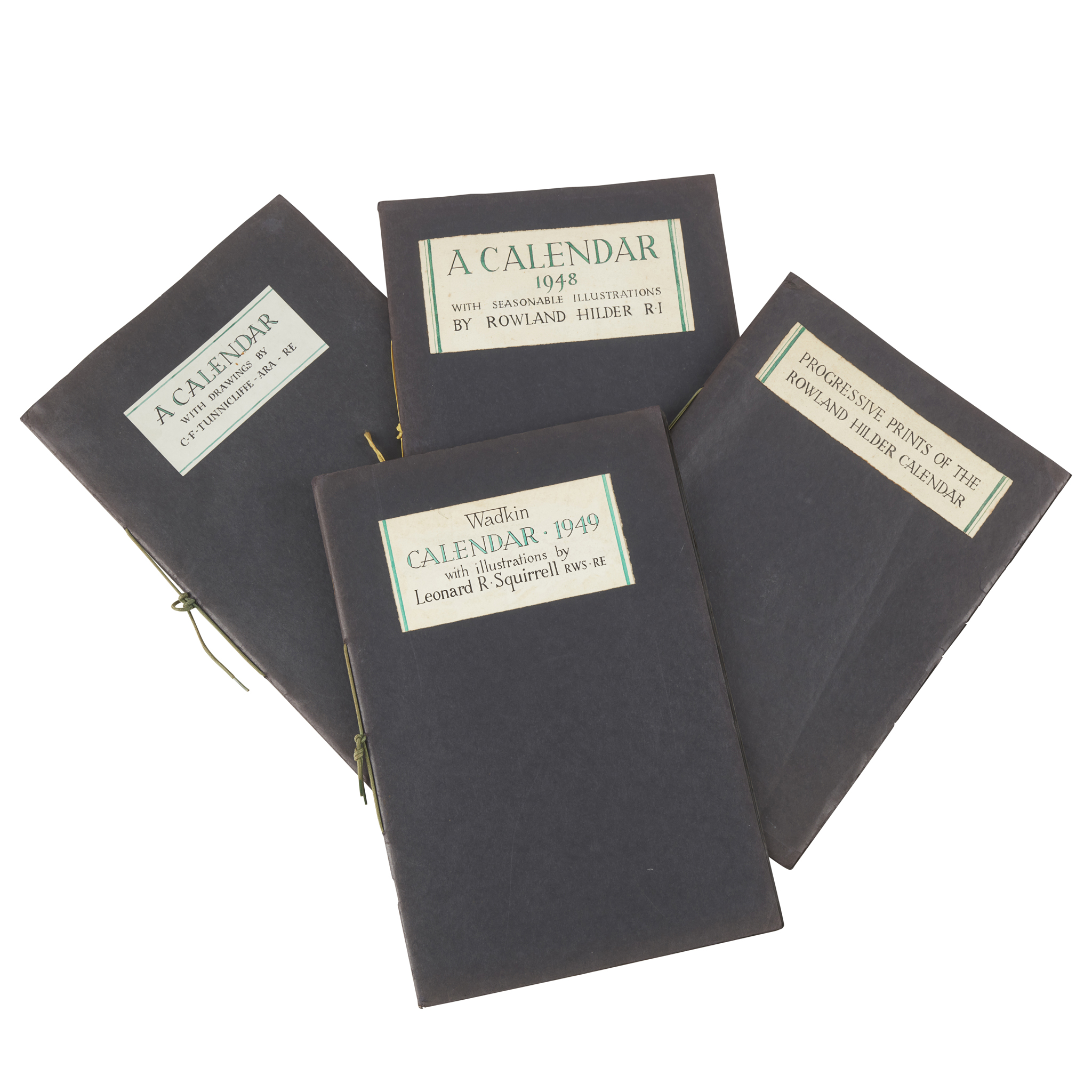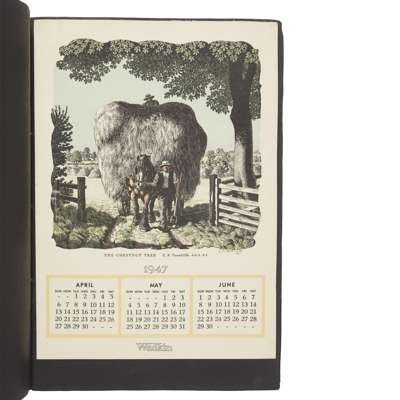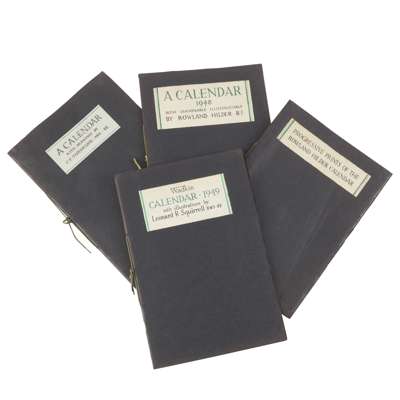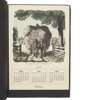
Lot 189

Charles Frederick Tunnicliffe R.A., R.E., A.R.C.A., O.B.E. (British 1901-1978) §
Printer's souvenir album of Tunnicliffe's illustrated calendar for Wadkin Ltd of Leicester, 1947






Auction: 19 September 2024 from 10:00 BST
Description
Folio (38.5 x 26cm), black thick-paper wrappers, string-bound, manuscript title-label to front wrapper, contents all mounted or tipped to black thick-paper leaves and comprising: 4 colour scraperboard prints (making up the complete calendar, with 3 months to a leaf), each signed by Tunnicliffe; 10 autograph letters and 1 typed letter signed by Tunnicliffe, all to the printers and concerning the production of the calendar; the leaves for July-September and October-December each in 6 successive states; calligraphic manuscript introduction and captions including the signature of the compiler, one Charles Bramley of Humberstone, Leicester.
Together with 2 similar Wadkin Ltd souvenir albums of illustrated calendars, respectively by Rowland Hilder R.I., O.B.E. (1905-1993) for 1948, and Leonard R. Squirrell R.W.S., R.E. (1893-1979) for 1949, the Hilder album in 2 volumes and containing 3 autograph letters from Hilder, proof plates, and similar, the Squirrell album containing some 10 autograph letters signed from Squirrell, proof plates, and similar, a few items in both the Hilder and Squirrell albums now loose
Footnote
Wadkin Ltd were a firm of woodworking machinery engineers established in Leicester in 1897 and operating as an independent business until their absorption by Nottingham firm A. L. Dalton in 2010. The three calendars commemorated by these albums appear to have been conceived in part to showcase the firm's reprographic technology, the introduction to the Tunnicliffe album explaining that: ‘This attractive production forms an example of the satisfying result which can be obtained when a discriminating man of business commissions at artist of repute to help him. Having agreed to break away from photographic reproductions it was decided by Mr J. Holland Goddard, the governing director of the firm, after discussion with Mr H. Beeston, publicity manager, to commission an artist of front rank to make four drawings of subjects which would bear some reference to “wood”: wood denotes the countryside so the choice of Mr C. F. Tunnicliffe was inevitable as the wide range of his accomplishment in that sphere was acknowledged’.





